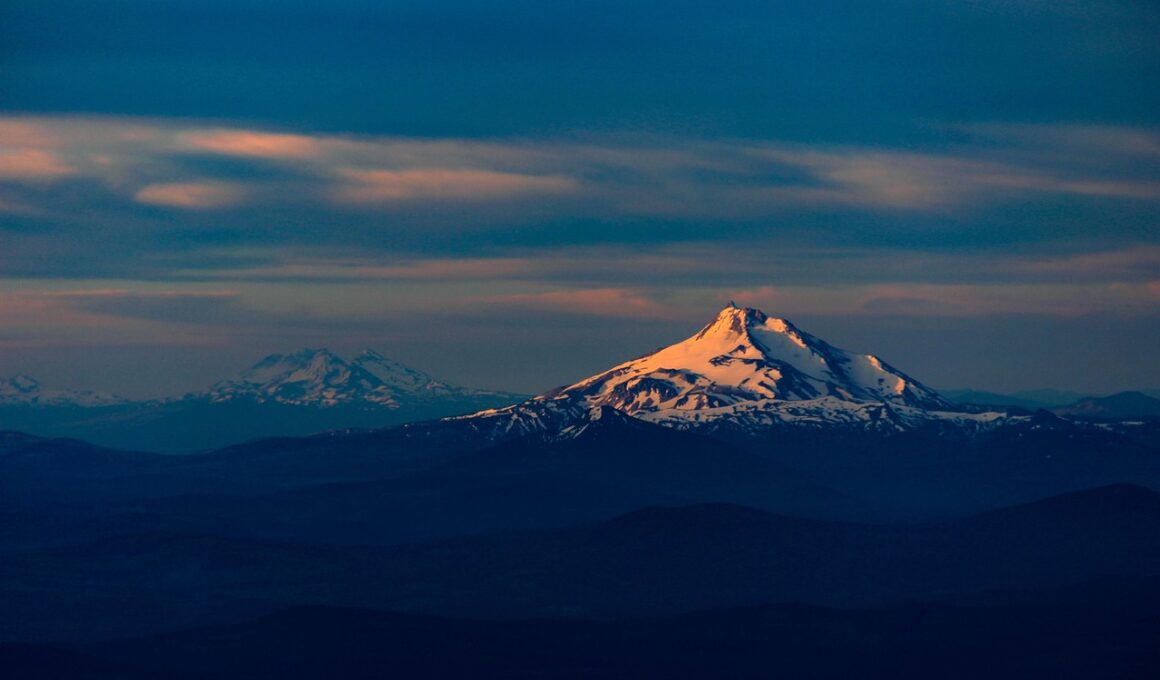Landscape Photography Tips from Leading Pinterest Boards
For photographers looking to enhance their landscape photography, Pinterest boasts a wealth of boards dedicated to this art form. These boards offer a diverse range of tips that can significantly improve your photography skills. A great starting point is to research stunning landscapes captured by professionals. Analyzing their techniques will allow you to see how they compose their images. Take note of the patterns in their photos, particularly how they frame their foreground and background elements. Participating in community discussions on these boards can also provide invaluable feedback on your shots. Remember to experiment with various aspects of landscape photography. Adapt the techniques that resonate with you while maintaining your unique style. Whether utilizing natural light effectively or mastering long exposure shots, every bit of guidance helps. Don’t forget to explore seasonal variations in landscapes as well. Spring blooms, autumn leaves, and winter scenes can create stunning visuals and provide rich subject matter. Engaging with Pinterest boards allows you to learn not just through visuals, but also through inspirational captions and shared experiences that enhance your photographic journey!
Finding the right boards is essential as you delve deeper into landscape photography. Utilize Pinterest’s search feature efficiently by inputting specific queries like “Scenic Landscape Photography” or “Nature Photography Tips”. This will unlock a treasure trove of resources tailored to your interests. Inside these boards, you’ll frequently discover categorized pins, many compiling tutorials and techniques. Some focus exclusively on equipment selection and camera settings, which are critical for achieving stunning results. Remember to revisit these boards regularly as they often get updated with new content. Moreover, interactive elements such as comments provide unique insights from fellow photographers. Sharing your own tips and experiences not only fosters community but also enriches your learning. You might even consider crafting your own board dedicated to your photography journey. This can serve both as a personal archive and an engagement tool with others. Don’t shy away from saving inspiring photos you encounter—these save options help you gather ideas and techniques for future shoots. Ultimately, Pinterest should become a dynamic hub for your evolving landscape photography expertise.
Incorporating Composition Techniques
Composition plays a crucial role in landscape photography, and Pinterest boards provide practical tips in this area. A popular technique highlighted in numerous boards is the rule of thirds, which can dramatically improve the visual balance of your photographs. When capturing a landscape, try positioning the horizon line either one-third from the top or bottom of the frame. This creates a more engaging image, drawing the viewer into the scene. Another compelling technique is leading lines, which naturally guide the viewer’s eye through the composition. Look for natural lines in the environment, such as rivers or roads. Using symmetry can also elevate your landscape images, presenting a more harmonious and aesthetically pleasing feel. Don’t hesitate to explore variations of these techniques, experimenting with vertical vs. horizontal orientations. As much as hearing tips is beneficial, actively applying these concepts will lead to improvements. Pinterest boards often showcase before-and-after examples, which visually illustrate the impact of various composition techniques. This can be particularly enlightening and motivational as you continue to grow your skills. Practice these recommendations persistently for even greater mastery over your images.
Another vital aspect of landscape photography is understanding lighting conditions, and Pinterest provides valuable insights regarding this subject. Many boards feature tips on the best times for outdoor shooting, emphasizing the golden hours. The soft, warm light during sunrise or sunset brings depth and richness to any landscape. The way a photograph captures light also influences mood, so experimenting with various weather conditions can produce different effects. For instance, overcast days provide diffused lighting, resulting in softer tones that may be perfect for certain landscapes. Additionally, learning to recognize how shadows play across a scene will enhance your ability to craft dramatic shots. Some photographers specifically seek out unique lighting situations, such as storms or fog, capturing landscapes under diverse conditions. Don’t forget to consider the impact of your camera settings on exposure as well. Adjusting parameters like ISO, aperture, and shutter speed according to lighting can yield impressive results. Be sure to engage with fellow photographers about their experiences with lighting scenarios. Sharing tips on this topic can create a rich pool of knowledge that everyone can benefit from as you navigate this fascinating aspect of photography together.
Exploring Different Techniques
Beyond basic techniques, many Pinterest boards delve into advanced methods, like HDR and panoramic photography. High Dynamic Range (HDR) imaging is particularly riveting for landscapes, blending multiple exposures for enhanced detail across highlights and shadows. This method allows you to capture scenes that may have stark contrasts, such as bright skies against dark mountains. Boards may include tutorials on software selections, providing hints on post-processing options that yield stunning HDR results. Additionally, panoramic photography captures vast landscapes in one sweeping frame, and many tips on Pinterest guide you through achieving professional-quality panoramas. Utilizing tripods is often encouraged here, ensuring stability as you take multiple shots to stitch together. Understanding how to compose these larger-scale images will help in presenting a cohesive view of expansive landscapes. Studying successful examples on Pinterest will spark your creativity and guide your projects. Engage actively with these discussions to enhance your technique. The exploration of such advanced techniques can set you apart from other photographers, showcasing your artistic vision through a more layered approach to landscapes. Continually pushing your boundaries will help solidify your skills and broaden your creative expression.
Post-processing is another critical element highlighted in Pinterest boards dedicated to landscape photography. Many photographers recommend utilizing software like Adobe Lightroom or Photoshop to edit their images effectively. Editing plays a vital role in refining your compositions, enhancing colors, and adjusting contrasts that transform photos from ordinary to extraordinary. Begin your editing process by correcting exposure and white balance to ensure colors appear vibrant and true to life. Utilize tools available within these programs, such as cropping and sharpening, to fine-tune your photograph and highlight your subject matter. Many boards provide before-and-after images showcasing the impact of editing, inspiring you to learn more. Furthermore, color grading can dramatically change the mood of your image, and several tutorials offer tips on achieving specific effects. It’s also beneficial to develop a consistent editing style that resonates with your overall artistic vision. Engaging with communities on Pinterest discussing post-processing can lead to discovering new techniques or shortcuts. By continually evolving your editing skills, you’ll find yourself producing increasingly professional-quality images that highlight your unique perspective on landscape photography.
Inspiration from Community
Lastly, taking advantage of community engagement within Pinterest boards elevates your landscape photography. The photos you find are not just about technical tips; they’re a source of inspiration as well. As you scroll through breathtaking images, allow yourself to envision opportunities in your immediate environment. Connect with fellow photographers through comments, seeking advice on specific landscapes or scenarios. Engaging with the community will open doors to networking, finding mentorships, or even collaborative projects. Sharing your own work is equally essential, as it invites remarks that can further enhance your learning. Host discussions by asking questions about techniques they used, encouraging dialogue that fosters growth. Be actively involved by responding to comments on your images and sharing insights from your experience. Many successful photographers credit their progress to the nurturing support of communities. Utilizing Pinterest boards effectively also promotes continuous education, as trends and techniques evolve in photography. Make it a point to visit these boards regularly, continuing to engage with their influence on your craft. Each interaction not only nurtures your creativity but also strengthens your bonds within the photography community.
In conclusion, utilizing Pinterest boards as a resource for landscape photography can significantly enhance your abilities. The various techniques and approaches shared across different boards encourage innovation and creativity in your work. From mastering compositional elements to experimenting with lighting conditions and landscape techniques, every aspect contributes to improving your photography. The community engagement on Pinterest is also invaluable, allowing you to connect with other photographers for feedback and support. Over time, you’ll discover your unique voice and perspective within landscape photography, fueled by the inspiration you gather. Continually revisiting these boards ensures that you stay updated with trends while savoring fresh tips that elevate your craftsmanship. Whether you’re a beginner looking for foundational skills or an expert seeking advanced techniques, Pinterest has something to offer. Your photographic journey will be enriched by the collaborative spirit and the wealth of knowledge available at your fingertips. As you document your adventures in landscape photography, make sure to pay homage to the insights you gain along the way. It’s through practicing, experimenting, and learning from peers that you will truly master the art of capturing remarkable landscapes.


